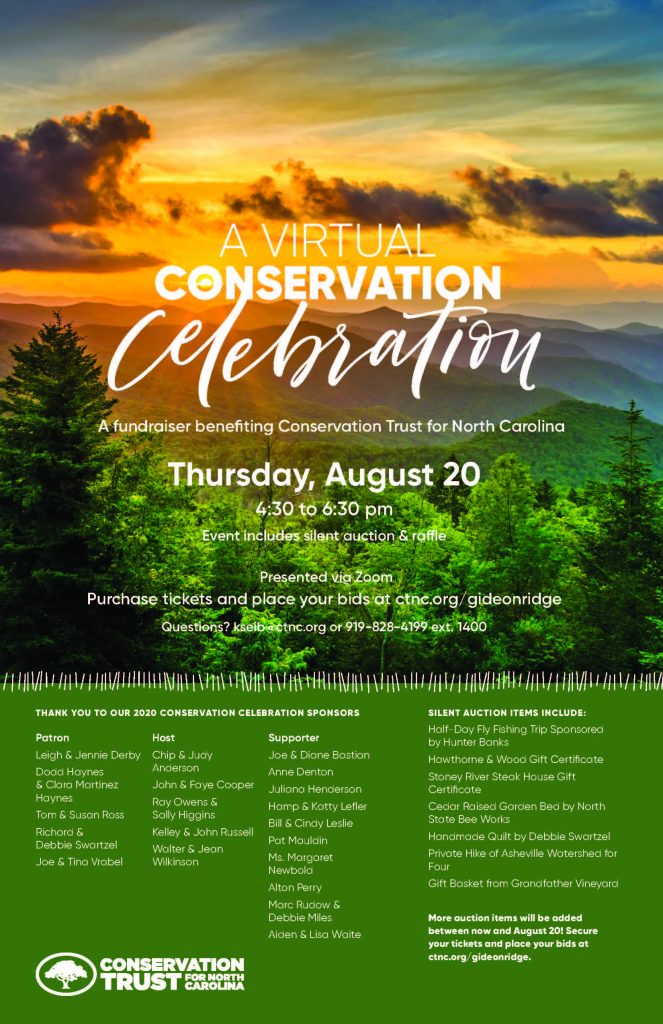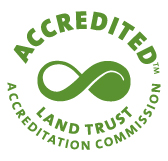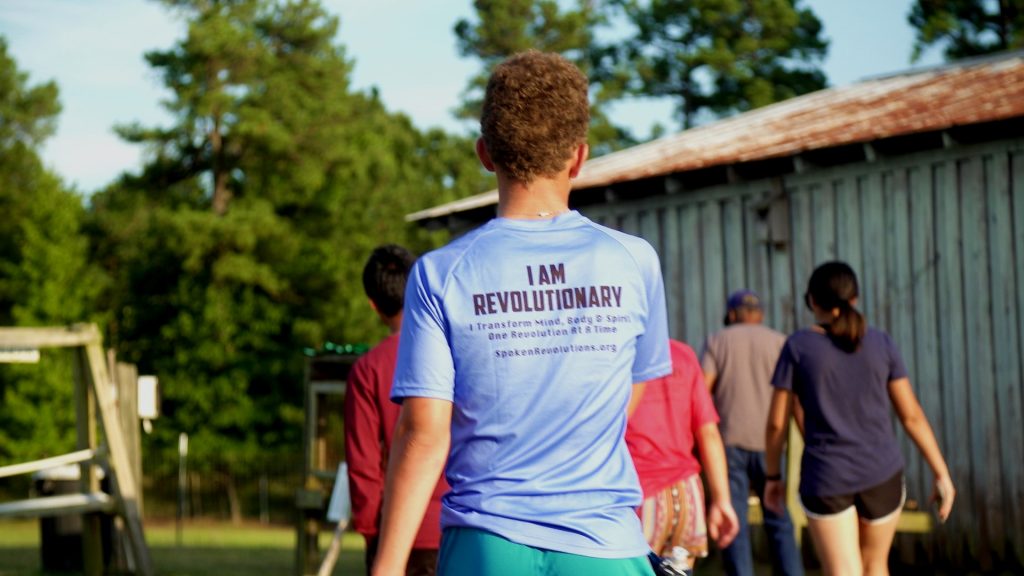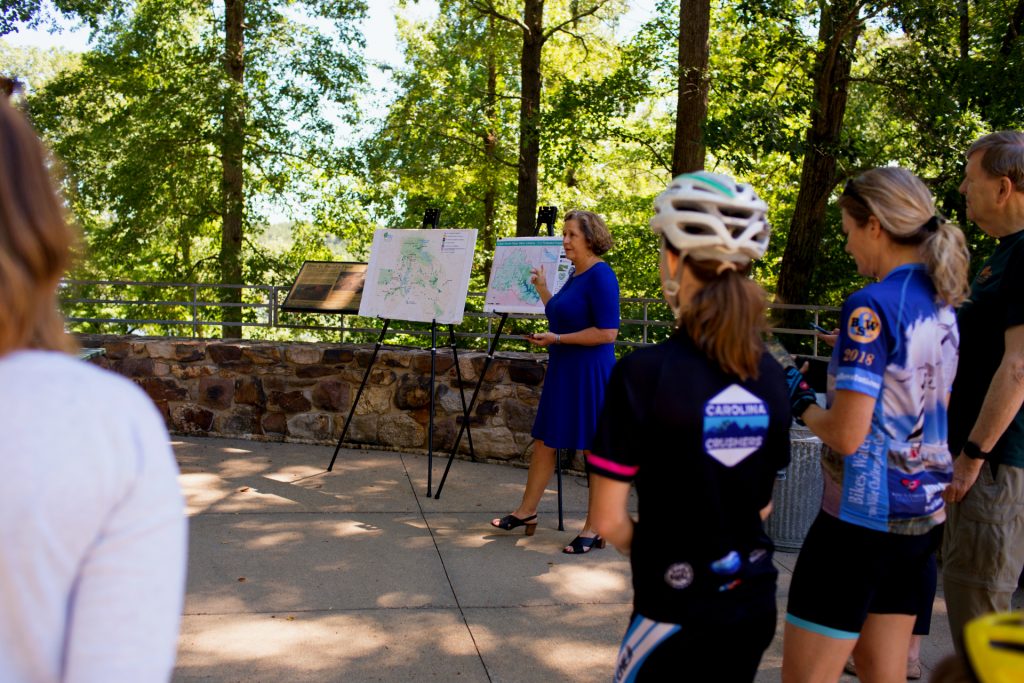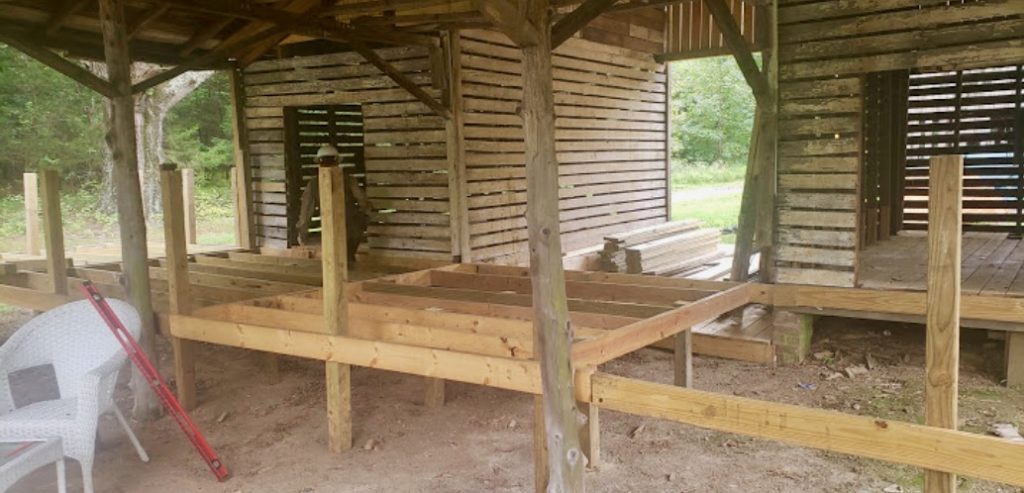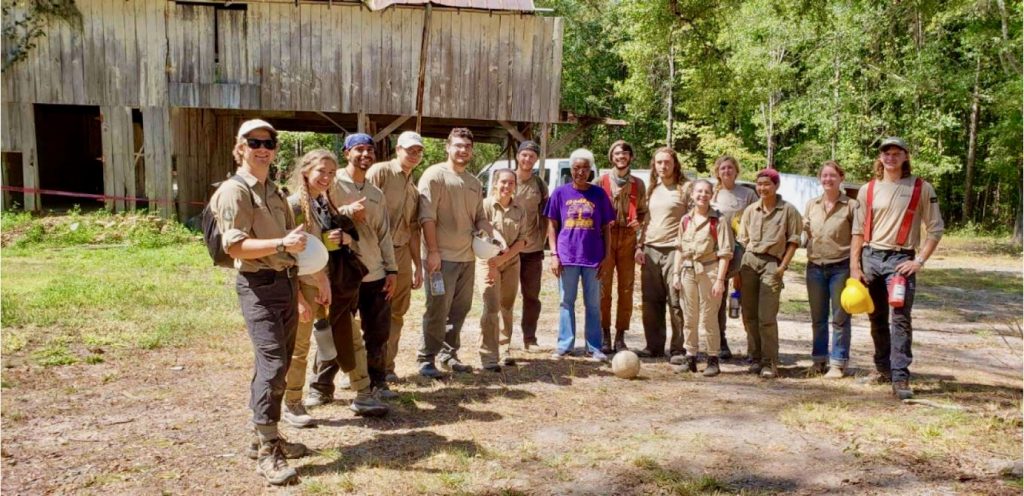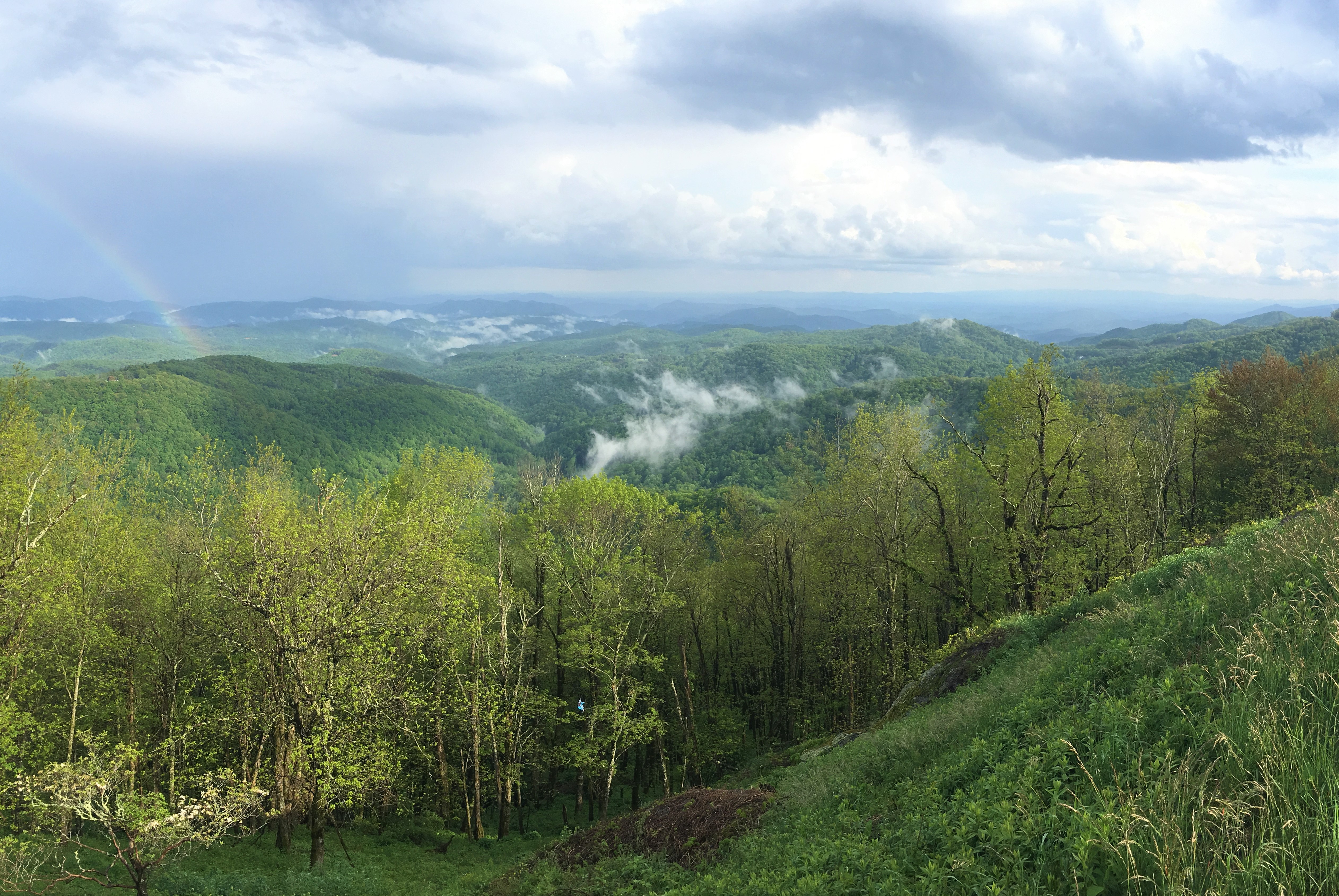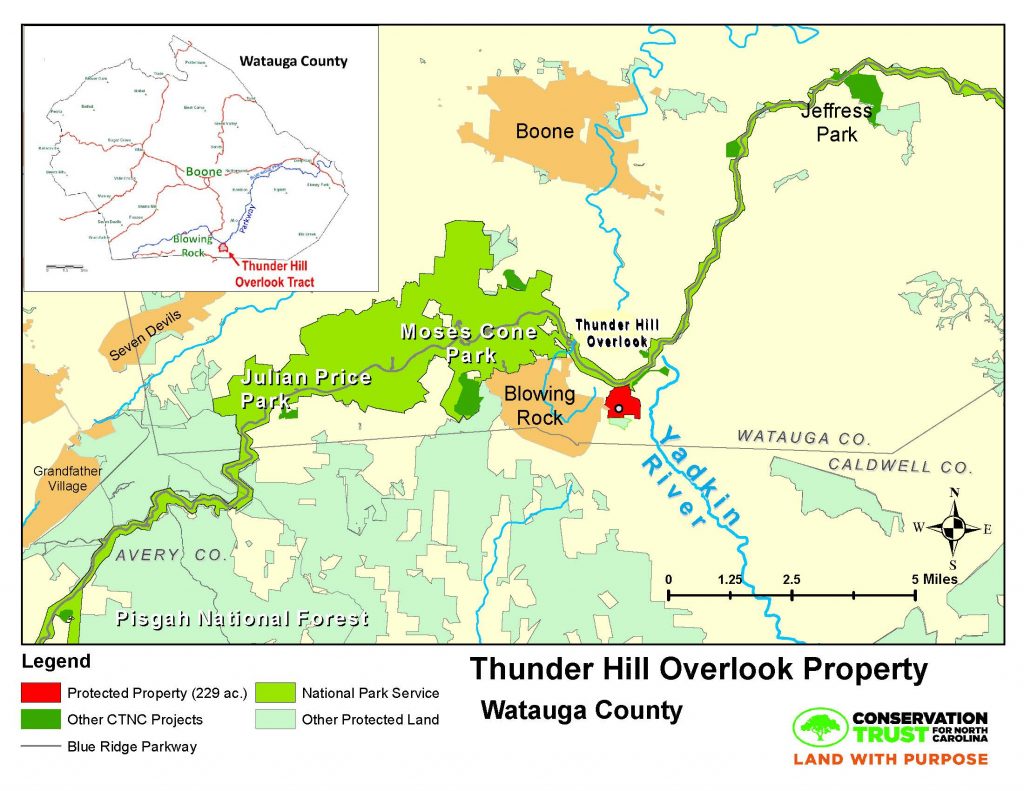Your donation can make the difference for ensuring communities have safe, healthy drinking water in perpetuity.
Few things are more fundamental to life than water. We need water in the right amounts in the right places with the highest quality. Yet more and more we face water shortages, water quality declines, and rising waters that flood communities.
Since conserving our first property in 1993, CTNC has made significant contributions to the protection of water for millions of North Carolinians. We’ve provided direct watershed conservation by securing conservation easements on the Asheville and Waynesville watersheds. We’ve also conserved land further upstream that serves to store, filter, and clean water as it makes its way to larger sources. Your investment in our work has often been an investment in what makes North Carolina truly resilient: water.
CTNC’s new strategic plan further strengthens our resolve to protect and conserve land to clean and better manage water for all people throughout our state. Our work helps to ensure that clean water is a right enjoyed by everyone – regardless of wealth, race, or geography.
The key to healthy land and well-managed water is an engaged community that identifies threats and finds solutions to care for the places they love. As part of our conservation community, you have made a tremendous impact on our efforts to conserve land and water for North Carolina.
CTNC’s work in partnership with the Town of Princeville along the Tar River is an extension of this effort to protect water resources for North Carolinians. As you may have seen, the final “Floodprint” for the Town of Princeville was just released by the NC State Coastal Dynamics Lab. This detailed plan shows how smart conservation and landscape planning will help the town survive future floods while building a vibrant economy that preserves and celebrates Princeville’s proud history.
Plans are already being put into action through a $200,000 investment by the National Fish and Wildlife Foundation. The first phase of the Floodprint effort includes a collaborative community project to build water-absorbing, green infrastructure around the Princeville Elementary School for the benefit of its students and the surrounding community.
In the Triangle, CTNC was awarded a $250,000 grant from the Caterpillar Foundation to fund local land trusts working to protect land in the Upper Neuse River Basin. This money will go directly into land acquisition along the Neuse River so citizens in the Triangle have fresh and healthy drinking water. CTNC’s financial support of our conservation partners continues to be an important part of our work.
Thanks to multiple funding partners and support from generous donors like you – we continue to make major strides toward building resilient, just communities throughout North Carolina. Because of your investment in our work, we are able to develop a model for community resilience that can be replicated across the state and the nation.
Can you help CTNC continue to protect water resources in North Carolina by conserving critical land that benefits your community? Together, we are ensuring that conservation benefits everyone.
This year, we have set a very ambitious goal of raising $130,000 by December 31 and we simply cannot meet this goal without your help. A gift before the end of the year would help ensure that we are able to continue our conservation work in 2021 and that our model for conservation is one that other organizations across the country not only learn from, but also emulate and implement in their own communities. You have been with us every step of the way as we built a bold new concept of conservation. Can you make a gift today in support of our work?






